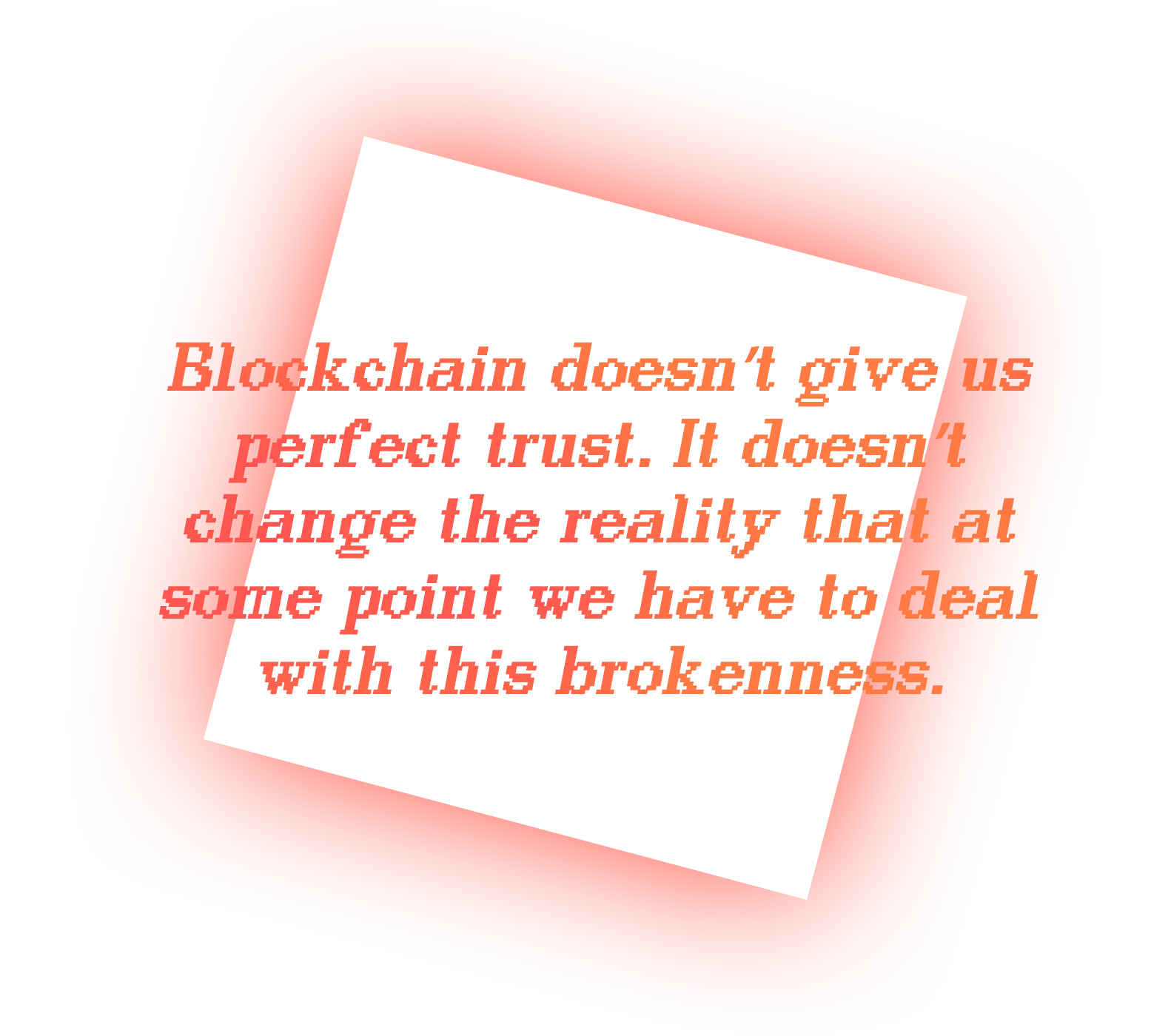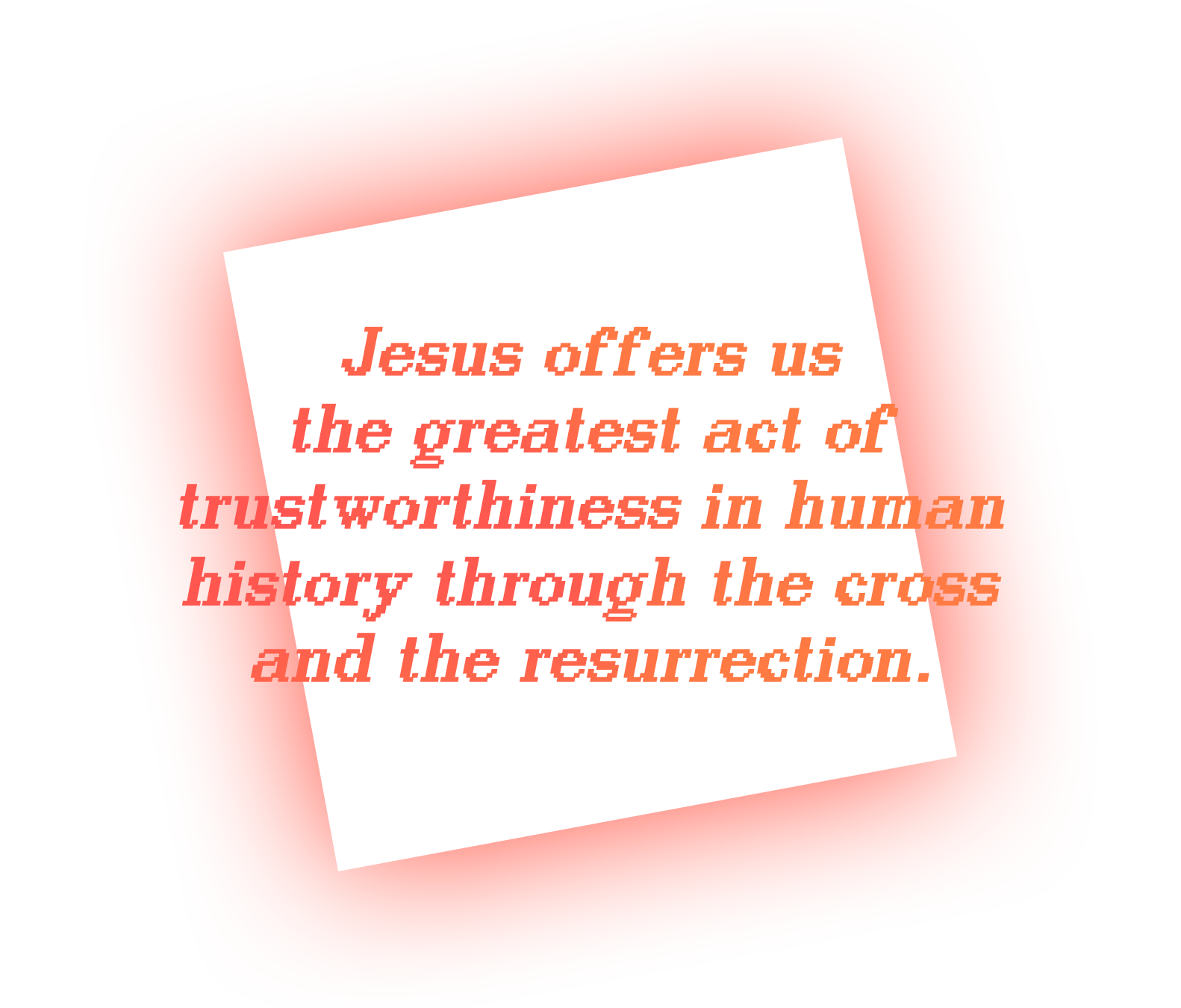We hear about blockchain technology more and more these days. So what is it?
It operates on a shared ledger, which is a peer-to-peer system that can document and log data, transactions, digital currency, contracts, etc.
Now it’s not clear how this is going to be applied to everyday life, but the benefits of blockchain technology are undeniable.
As the future unfolds, we are likely to see blockchain technology applied to healthcare, finance, voting, education, law and much more.
One of the reasons why blockchain is pushed and sold so hard these days is because it offers, what we are told, a system of perfect trust.
It’s incorruptible — there’s no way of hacking it, there’s no way of ripping people off.
But is there more to it?

Albert Einstein famously said that it has become appallingly obvious that our technology has surpassed our humanity.
And around 3,000 or 4,000 years before that, a prophet named Isaiah wrote that we all like sheep have gone astray. Each of us has turned to our own way (Isaiah 53:6).
Einstein and Isaiah were absolutely right.
Blockchain doesn’t offer us perfect trust — it offers us perfect accountability.
Funnily enough, what it points to is the fact that we have zero trust in each other.
Blockchain technology highlights the fact that all human beings are intrinsically untrustworthy. We are all turned in ourselves and our own interests.
Blockchain mitigates against the reality that we are intrinsically untrustworthy.
And it masks us and others from our brokenness for the purposes of human activities and transactions – that’s great.
But blockchain doesn’t give us perfect trust. It doesn’t change the reality that at some point we have to deal with this brokenness.
Perfect trust can only come from someone who is perfectly trustworthy. And in human history, only one person can bear claim to that. His name is Jesus Christ.
There are two reasons. First, Jesus says that He is perfectly trustworthy.
He has proven it to us by stepping into the world, going to the cross, taking all our guilt and shame and untrustworthiness Himself and then rising from the dead, affirming and proving who He is — God Himself in person.
Jesus offers us the greatest act of trustworthiness in human history through the cross and the resurrection.

But He also says if we come to Him, we can be cleared of the spiritual and existential impact of our brokenness.
It’s not that we suddenly become perfect or less broken once we come into a relationship with Jesus, but He doesn’t see us as intrinsically broken and evil and untrustworthy anymore.
So our relationship with Him is completely healed. And that empowers us over time to build more relationships of trust with other people.
As we walk with Jesus, we become like Him. We become people who are able to build authentic relationships.
Blockchain technology will never give us that.
It may give us perfect accountability, but alongside that, we need to take responsibility for our own brokenness and go about the more important business of building authentic relationships in the real world or virtual world.
That can only happen in its fullest form in and through Jesus Christ.
So if we want perfect accountability, blockchain is an enormous asset. Decentralised finance is going to offer us accountability in ways that we’ve never seen before.
But if we want perfect trust, we need to take a lesson from Einstein and Isaiah, and look to the person of Jesus Christ.
I encourage you to look at one of the four credible biographies of Jesus Christ – you’ll find them in the books of Matthew, Mark, Luke and John at the beginning of the New Testament.
Jesus Christ steps into the world and goes to a cross, offering us the greatest demonstration of credibility and trustworthiness in human history.
This is the second in a series of articles and videos we have produced in collaboration with Thinking Faith. Check out Episode 1 below!









